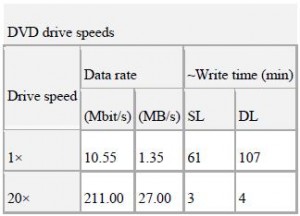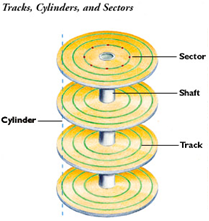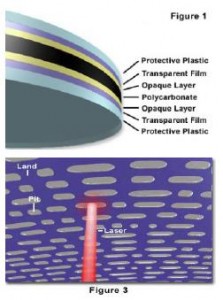Which Media???
Hard Disk Drive(HDD)
- A hard disk drive (HDD), commonly referred to as a hard drive, hard disk, or fixed disk drive, is a non-volatile storage device which stores digitally encoded data on rapidly rotating platters with magnetic surfaces.HDD, itself, was built with multiple read-write, should come as no surprise that this format’s biggest advantage, millions rewrite times.
Digital Versatile Disc(DVD)
- DVD, also known as “Digital Versatile Disc” or “Digital Video Disc,” is a popular optical disc storage media format.The wavelength used by standard DVD lasers is 650 nm, and thus the light has a red color.Since DVD ROM stands for Digital Versatile Disk – Read Only Memory, it should come as no surprise that this format’s biggest disadvantage is that it can’t be used more than once.
How much Storage???
HDD: Large storage capacity
- A typical desktop HDD can store between 120 GB and 2 TB of data (on Current US market data)
DVD: Medium storage capacity
- 4.7 GB (single-sided single layer)
8.54 GB (single-sided double layer)
17.08 GB (double-sided double layer) - Lower Data Transfer/access speed
We all need speed/fast access???
HDD: Transfer/Access Speed
- HDD Rotate at 5,400 to 10,000rpm and have a media transfer rate of 1Gbit/s or higher (1GB = 109 B; 1Gbit/s = 109 bit/s) Stores and retrieves data much faster than DVD/CD.
- As of 2008, a typical 7200rpm desktop hard drive has a sustained “disk-to-buffer” data transfer rate of about 70 megabytes persec.
- Latest, 3.0 Gbit/s SATA, which can send about 300 megabyte/s. from the buffer to the computer, and thus is still comfortably far ahead of today’s DVD-to-buffer transfer rates.
- Most external hard-disk-drive cases with FireWire or USB interfaces. eSATA, standardized in 2004, provides a variant of SATA meant for external connectivity. Full SATA speed for external disks (115MB/s)
- eSATA attracts the enterprise and server market, because of its hot plug (and online) capability and low price.
- Access speed does not reduce, with increase in capacity.
- Cheap on a cost per megabyte compared to other storage media.(DVD/CD).Recent market survey shows 1TB HDD costs starts from $60 above
- Hard disks can be replaced and upgraded as necessary Can have two hard disks in a machine, one can act as a mirror of the other and create a back up copy.
DVD: Transfer/Access Speed
- Access speed reduces tremendously with increase DVD space.
- Very Costly, to get same 1TB of space ($200), moreover not available on 1 disk, multiple DVD Disc’s needs to be used.
- DVD Duplication/data copy requires burning a blank DVD, which is software & DVD-writer speed dependent process, tedious time consuming process, has compatibility issues with uses on different drives
Longer media life???
HDD: Longevity/Degradation
- HDD’s have a longer shelf life, Hard disks and cartridges will last longer because the disks are rigid, Compact, Enclosed. More than 15 years is Life expectancy.
- Because of casing, compactness, external factors have least effect, on internal mechanism.
DVD: Longevity/Degradation
- DVDs and CDs have a shorter shelf life.DVD/CD technology uses a dye that can fade, especially if exposed to UV light. You should expect life for 5 years
- Environmental forces will degrade the data layer much faster than the polycarbonate substrate layer (the clear plastic that makes up most of the disc).
Where is Web accessibility???
HDD: Online Storage
- RAID combines two or more physical hard disks into a single logical unit by using either special hardware or software. Access rate, transfer rate is best for network storage.
- Cost per online Gigabyte: $0.55
- Share HDD online: Most simple way is to install a free FTP server (software) like FileZilla, give certain people access to your files through an FTP client or web browser.
- With portable USB HDD, you can carry your large data (GB’s), and get online anytime. Adidas NMD Dames Only USB port needed. asics gel lyte 3 pas cher (Available on 9 out of 10 machines)
DVD: Offline Storage only
- Used for Offline storage; very sluggish access over Local Area Network.
- Sharing across web (online) is not possible.
- For mobility, of Carrying large data(GB’s), one needs multiple DVD’s, with availability of DVD-Rom on that machine
More for Less: Data storage density???
HDD: Data Storage
- Data is stored in a very orderly pattern on each platter. Bits of data are arranged in concentric, circular paths called tracks. Nike Air Max 2016 Heren Each track is broken up into smaller areas called sectors. Part of the hard drive stores a map of sectors that have already been used up and others that are still free.
- When the computer wants to store new information, it takes a look at the map to find some free sectors
- Typically, Data up to 100 GB’s can be store on single platter
- With so much information stored in such a tiny amount of space, a hard drive is a remarkable piece of engineering. nike air max 95 pas cher That brings benefits
DVD: Data Storage
- A DVD is composed of several layers of plastic, polycarbonate base, totaling about 1.2 millimeters thick. Chaussures Nike Pas Cher Writing data to the DVD is done by a red laser beam modulated by the serial data stream.
Whether it’s grilled, sautéed, baked, or roasted, http://www.recipesabc.com this is your guide to the ultimate weeknight wonder: Chicken!